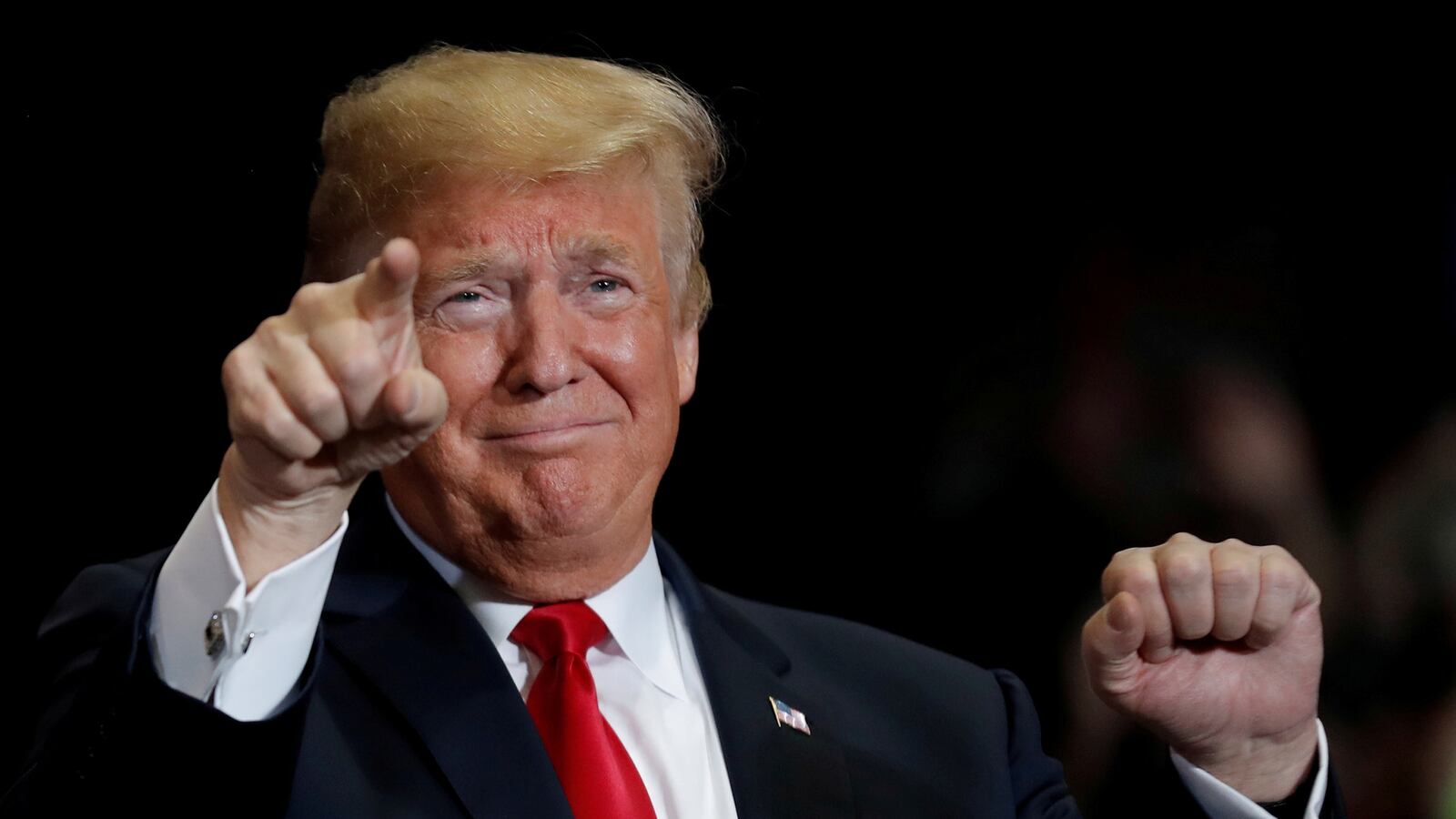Midterm losses for an incumbent president are almost inevitable. But if you’re looking for someone to blame for the Republican Party’s showing on Tuesday, it’s Donald Trump. And if you want to understand what makes him tick, just consider his behavior the first 24 hours after his party lost control of the House, but performed well in the Senate.
Whether he was feeling cornered and defensive about the losses, or emboldened by his Senate victories, the real Donald Trump was on full display Wednesday. It was manifested through his unchivalrous comments about losing Republican candidates, his firing of Attorney General Jeff Sessions, and the confrontation with CNN’s Jim Acosta.
Let’s start with his treatment of losing Republicans. Most presidents opt to throw themselves under the bus for the sake of the party. If hugging an unpopular and vulnerable congressman in a given district would help, the president shows up. If attacking the incumbent president helps the vulnerable congressman, they may grant him or her permission to do so. Either way, once the smoke clears, there are no reprisals, just magnanimity and sacrifice on behalf of the team.
In Donald Trump’s world, he is the team.
“Mia Love gave me no love and she lost,” Trump said regarding Utah Rep. Mia Love’s apparent loss on Tuesday.
“Barbara Comstock was another one. I think she could have won that race, but she didn’t want to have any embrace,” he continued, in what sounded a bit like slam poetry.
But he didn’t reserve his criticism solely for women, and it wasn’t just delivered in rhymes.
“Peter Roskam (Illinois) didn’t want the embrace,” he continued. “Erik Paulsen (Minnesota) didn’t want the embrace…”
The message was clear: Stick with me, and we’ll go places. Deny me, and you’re done. Don’t take sides against the Family.
Only, it’s not true. In 2016, Barbara Comstock managed to win re-election, despite Trump not because of him (Hillary Clinton won her district by 10 points). But even Comstock couldn’t overcome the backlash against Trump two years later. One of the Congressional losers Trump criticized was Miami Rep. Carlos Curbelo, who pushed back on Trump’s narrative on Twitter, writing: “So yesterday @realDonaldTrump stated that had I been more aligned with him, I may have won. Let’s check. I lost #FL26 49-51. My colleague @RepDeSantis who is closely aligned with the Pres lost 46-53.”
Trump, in all likelihood, couldn’t care less about the pushback. “Reagan” Republicans may have been hit hard, with candidates like Love, the first black Republican woman elected to Congress, a young Hispanic like Curbelo, and a suburban mom like Comstock, all losing their seats. But that just means the Republican Party is being molded more in Trump’s image: a coalition of rural, working-class whites, while being even less competitive with suburban, college-educated voters.
Trump may want allegiance from Republican Congressmen (a co-equal branch of government). But he demands strict fidelity from his subordinates.
Just look at what’s happened to Jeff Sessions.
Never mind the fact that Sessions’ endorsement of Trump during the 2016 campaign was crucial, or that the two men share a nearly identical worldview regarding the issue of immigration. Sessions’ unpardonable sin was that he (appropriately) recused himself from the Russia investigation.
That recusal was properly viewed as a sincere nod towards preserving norms, trust in government and the rule of law. Trump saw it as a sign of weakness and/or disloyalty. On Wednesday, Sessions was, essentially, fired.
In Trump’s world, loyalty is absolute and flows in one direction. This is not new. “I need loyalty, I expect loyalty,” he told then-FBI Director James Comey. In other words: get with the program—comply—or pay the price.
Trump’s demands for strict conformity even extend to the media. Most normal presidents expect an adversarial, or even contentious, press corps. And Trump, for better or worse, has had his. What presidents do not do is ban reporters from major news outlets. What presidents do not do is call reporters the “enemy of the people.”
Again, though, this all fits his pattern. In Trump’s mind, there are good people and bad people. Good people do what Trump wants. Bad people are demonized, accused of betrayal, or otherized. In some cases, people who end up on the wrong side of a confrontation with Trump just fade away (see Jeff Flake). In other cases, they are defeated (see Mark Sanford). In the worst cases, his uncivil rhetoric and Manichean framing seem to be inspire uncivil behavior from both his supporters and opponents. And it’s worth wondering how much of this is simply in service of preserving the president’s fragile ego.
C.S. Lewis once wrote that, “We must picture hell as a state where everyone is perpetually concerned about his own dignity and advancement, where everyone has a grievance, and where everyone lives with the deadly serious passions of envy, self-importance and resentment.”
Welcome to Trump’s America.






